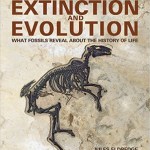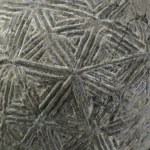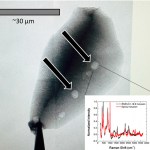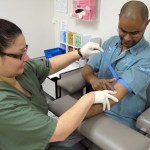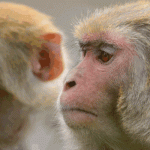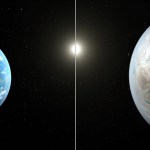biology
Katie May was a model, and by all accounts a very successful one, having appeared in Playboy, Sports Illustrated, and other magazines and websites. Self-proclaimed the "Queen of Snapchat," she also had nearly two million Instagram followers and was a major social media force, having recently parlayed her modeling and social media career into becoming an entrepreneur. She also died unexpectedly on Thursday night at the too-young age of 34, leaving behind a seven-year-old daughter. What makes May's tragic death an appropriate topic for this blog is not so much her young age but rather the…
"Do not look at stars as bright spots only. Try to take in the vastness of the universe." -Maria Mitchell
The analogies between small-scale, living things and large-scale, cosmic entities are abundant: between a neuron and the Universe's large-scale structure; between an atom and a solar system; between the stars in a galaxy and the atoms in a cell; between the cells in a living being and the galaxies in the Universe. It makes you wonder if, on a cosmic scale, some portion (or the whole) of the Universe could actually be alive and self-aware?
Image credit: Greyloch / Universal Design of…
Whenever I point out that a very common thread of "thought"—if you can call it "thought"—in alternative medicine is nothing more than germ theory denialism, the usual reaction is incredulity. Newbies who haven't encountered quacks before invariably do a double take when I inform them that germ theory denialism is a thing, particularly among antivaccine activists. (After all, vaccines don't make sense if microorganisms don't cause disease.) Yet, time and time again I find examples of quacks who deny that disease is a consequence of infection. In fact, some go so far as to try to argue in the…
"Mars is much closer to the characteristics of Earth. It has a fall, winter, summer and spring. North Pole, South Pole, mountains and lots of ice. No one is going to live on Venus; no one is going to live on Jupiter." -Buzz Aldrin
When we think about life in the Universe, we think about Earth-like conditions: a hospitable atmosphere devoid of poison, flowing water and the right temperatures and pressures for liquid on the surface, and just the right distance from the parent star to make it all happen. But perhaps life exists in abundance under very different conditions: in the atmospheres of…
To say that the relationship that antivaccine activists have with science and fact is a tenuous, twisted one is a major understatement. Despite mountains of science that says otherwise, antivaccinationists still cling to the three core tenets of their faith, namely that (1) vaccines are ineffective (or at least nowhere near as effective as health officials claim; (2) vaccines are dangerous, causing autism, autoimmune disease, neurodevelopmental disorders, diabetes, sudden infant death syndrome, and a syndrome that is misdiagnosed as shaken baby syndrome; and, of course, (3) the Truth (capital…
Blog topics seem to come in waves, where I'll be stuck on more deeply examining a topic for days, only to have that topic dry up. Sometimes, you, my readers, make me aware of a topic. This is an example of the latter case. It's something I had been debating about whether to blog about because I just wasn't sure what to make of it, and it's also a very, very depressing—even tragic—story. But the drip, drip, drip of people pointing me to the story reminded me that with great power comes great responsibility. (OK, with middling blog power comes a modicum of responsibility.) So I thought I'd try…
Over the last several months, a lot of great books on fossils and evolution (as in paleontology) have come out. I've selected the best for your consideration. These are great gifts for your favorite science-loving nephew, life science teaching cousin, or local school library. Actually, you might like some of these yourself.
Let's start off with a kid's book: Grandmother Fish: a child's first book of Evolution by Jonathan Tweet.
From the blurb:
Grandmother Fish is the first book to teach evolution to preschoolers. While listening to the story, the child mimics the motions and sounds of our…
A little archaeological conundrum found its solution this morning. At an excavation in Motala in the early 00s, colleagues of mine found a cupped piece of hard, greyish brown material with a distinctly patterned inside. They interpreted it as a piece of a lost-wax casting mould and suggested in a 2004 publication that it was for a Viking Period tortoise brooch. I've never seen the find live, but I could tell from the pictures that the pattern was certainly not from the Viking Period. I wrote in my 2011 book about the area (p. 119), “the object in question has a shape and a geometrical…
As a surgeon, I find Ben Carson particularly troubling. By pretty most reports, he was a skilled neurosurgeon who practiced for three decades, rising to the chief of neurosurgery at Johns Hopkins. Yet, when he ventures out of the field of neurosurgery—even out of his own medical specialty—he routinely lays down some of the dumbest howlers I've ever heard. For example, he denies evolution, but, even worse, he's been a shill for a dubious supplement company, Mannatech. Worse still, when called out for his relationship with Mannatech in the last Republican debate, Carson lied through his teeth…
“When you arise in the morning, think of what a precious privilege it is to be alive — to breathe, to think, to enjoy, to love.” -Marcus Aurelius
How old is life on Earth? If all you had to go on was the fossil record, you'd run into severe trouble once you went back more than one or two billion years, as all your rock would have metamorphosed, making examination and identification of fossils impossible. But recently, we've discovered another method: to measure the isotopic content of carbon deposits in ancient rock formations.
Image credit: E A Bell et al, Proc. Natl. Acad. Sci. USA,…
When we look at the vast expanse of stars in the night sky, we can't help but wonder what else is out there. Not just at the gas giants, rocky worlds, comets, asteroids, moons, and homeless planets strewn throughout our galaxy and all the galaxies beyond our own, but about what life -- what possibilities -- exist beyond our home world.
Illustration credit: NASA.
Very recently, a most unusual star -- KIC 8462852 -- had its light-curve data released by Kepler team, containing a series of unusually large, and inconsistent, drops in brightness around the star, fueling speculation that…
“If I had to describe myself to an alien I’d say I was bigger than the average human, enjoy a drink or two with a good meal and have a bigger head than most. I’d also say I’m really handsome — especially if they were a female alien.” -Dwayne Johnson
The fact that Earth has not only life on it, but had the potential for life just from the raw ingredients that the Universe birthed us with should give us tremendous hope for the future. Not only might we find life like us around other stars on a planet not too different from our own, but our own backyard might offer some possibilities -- either…
Earlier this week, the Nobel Prize in Physiology or Medicine was awarded to Youyou Tu for her discovery of the anti-malaria compound Artemisinin, as well as to William C. Campbell and Satoshi Ōmura for their discovery of a novel therapy for roundworm. Artemisinin, as some of you might know, is a compound derived from traditional Chinese medicine, which is why, to my irritation, it didn't take long for headlines like How traditional Chinese medicine finally won its Nobel Prize, What the 2015 Nobel Prizes mean for traditional Chinese medicine, and A Medical Breakthrough Made Possible By Ancient…
I've written many times about how the relationship between the early detection of cancer and decreased mortality from cancer is not nearly as straightforward as the average person—even the average doctor—thinks, the first time being in the very first year of this blog's existence. Since then, the complexities and overpromising of various screening modalities designed to detect disease at an early, asymptomatic phase have become a relatively frequent topic on this blog. Even more than ten years ago, I noted that screening MRI for breast cancer and whole body CT scans intended to detect other…
One of the limitations constraining those of us who do human subjects research is that ethical considerations often prevent us from designing our clinical trials in what would be, from a strictly scientific standpoint, in the most methodologically rigorous way. For example, we can't intentionally infect human beings with known inocula of deadly bacteria in order to cause a reproducible severity of disease to be treated with a new antibiotic.
One thing that antivaccinationists seem unable to understand is this very point with respect to vaccine trials. They will call for a "vaxed versus…
“The impact of an attacking tiger can be compared to that of a piano falling on you from a second story window. But unlike the piano, the tiger is designed to do this, and the impact is only the beginning.” -John Vaillant
I can't fault you if you've given up entirely on the perfume/cologne industry. Despite was might be marketed as a way to induce an "obsession" among your love interest, reality often falls flat. Have a listen to Suede sing about the idea in their song,
Obsessions,
while you consider that an interesting behavior that was quite unintended has been seen.
Image credit:…
As hard as it is to believe after over ten years of existence and over 5,000 posts on SBM, every so often, something reminds me that I've missed paper that cries out for some not-so-Respectful Insolence. So it was a couple of weeks ago, when I saw a familiar name in a news story that wasn't about vaccines. You might recall a news story last month when a shadowy group with ties to radical antiabortion groups, the Center for Medical Progress, led by a man named David Daleiden, ran a highly questionable "sting" operation (complete with fake IDs) to "prove" that Planned Parenthood was selling…
Readers of this blog of a certain age and above are likely to remember a U.S. Senator from Wisconsin named William Proxmire. Sen. Proxmire made a name for himself in the late 1970s and throughout much of the 1980s by issuing what he dubbed "The Golden Fleece Award," which was meant to "honor" public officials who, in Proxmire's view, egregiously wasted taxpayer money. It was a popular and often headline-grabbing device to highlight wasteful spending. There was one big problem with the award, though, that I increasingly appreciated as time went on, to the point where I've referred to the…
I've been a blood donor for over twenty years. The other day a doctor called me and asked me if instead of my normal quarterly donation, I'd be willing to give a few extra hours of my time along with a chunk of white blood cells. I said yes.
There's this transplant patient at a hospital in Stockholm. Like all such patients this person, let's call her Joan (I have no idea what her real name is), is on immune suppressant drugs to keep her body from tossing out the transplanted organ. She now seems to have contracted a difficult infection. Unfortunately she's developed antibodies against run-of-…
“You can spend too much time wondering which of identical twins is the more alike.” -Robert Brault
Earlier today, NASA announced the "most Earth-like exoplanet yet," a planet just 60% larger in radius than our own, orbiting a star of the same spectral class as our Sun and with an almost identical orbital period: 385 days.
Image credit: NASA/JPL-CalTech/R. Hurt.
But is this really the most Earth-like planet we've discovered? It's significantly larger and five times as massive, and may actually be more like Neptune than like Earth. In fact, other properties may be much more important if we…






